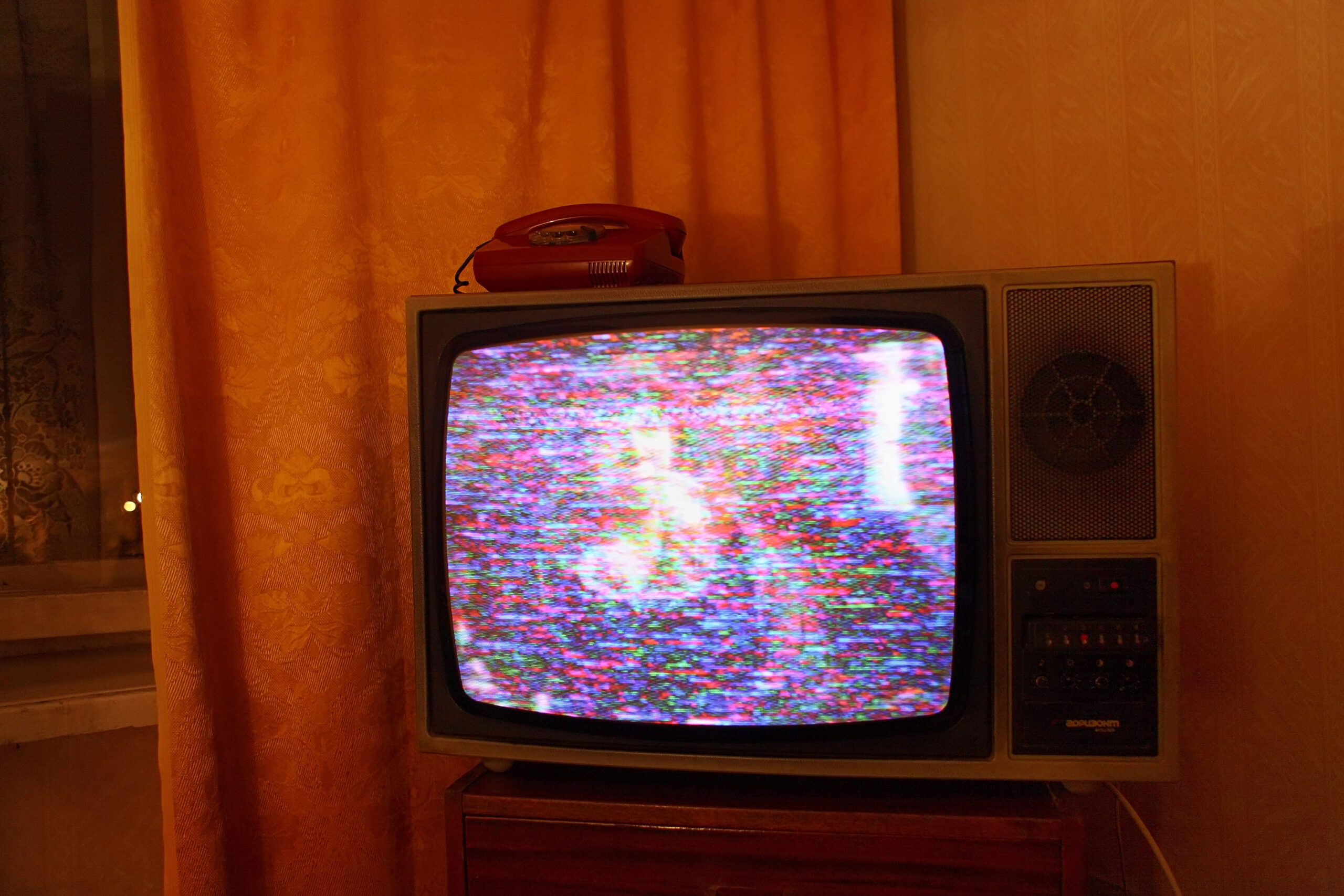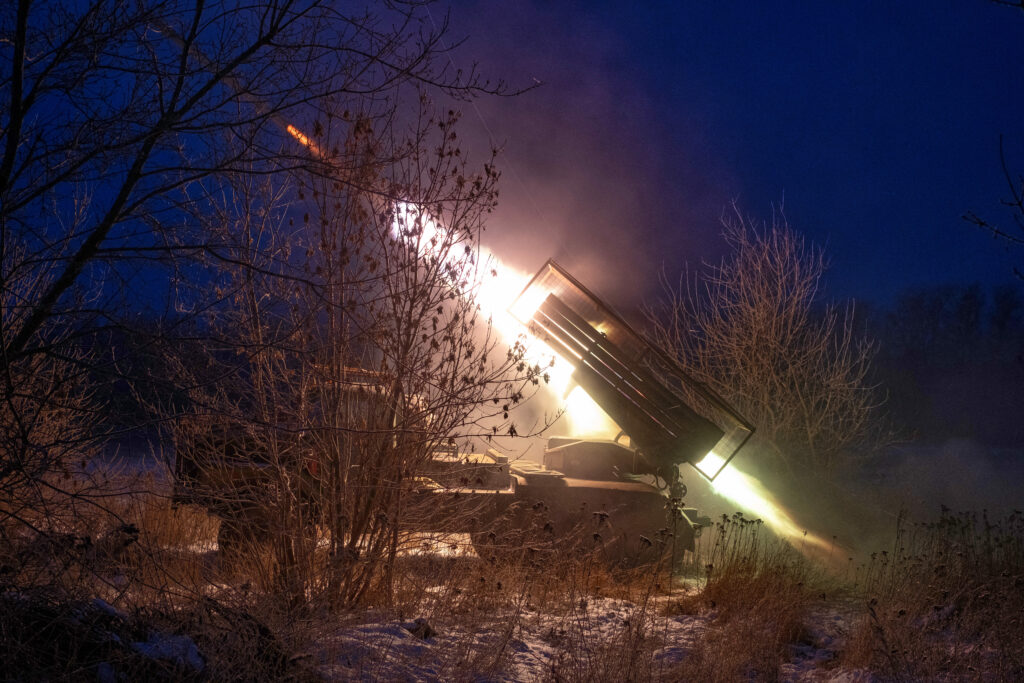Since the launch of Russia’s full-scale invasion of Ukraine, Telegram’s reach in Russia has more than doubled. In January 2022, according to Mediascope, it was 25.5 million users per day; by January 2023 the messenger app was already used by 48 million Russians (40% of the entire Internet audience in the country). And by May 2023, according to the same set of statistics, 51.2 million citizens used Telegram (42% of Russia’s entire Internet audience). As of this January Telegram has overtaken WhatsApp in terms of traffic. Back in October last year, the Russian Public Opinion Research Center (VTsIOM) recorded that the share of Russians who choose the Internet as the main source of information had reached 29% (66% among younger citizens), while TV remained the main source of information for only 16% (there are no more recent VTsIOM studies on this topic). Citizens watch mainly TV-series and entertainment programs on TV while the audience share of news releases and analytical programs is declining. News is watched by 11% of Russians; their interest in analytical programs last year briefly increased from 12% to 16%, and then fell to previous figures. The war forced people to consume more analytical information, but this new audience was clearly not satisfied with official coverage.
Back in May 2022, researchers found that the share of TV trust after the start of the war dropped sharply from 33% to 23%. There is no more recent information on this topic; in principle, it is clear why. During this time, mobilization took place in Russia, the plans for which the official authorities denied in every possible way via official channels of information. Producing only Kremlin approved information did not help — mobilization turned out to be an extremely unpopular measure, which made citizens’ anxiety soar. After it began, most citizens guessed the government was hiding something, and not the whole truth was on TV. The pro-military audience, after the successful Ukrainian counter-offensives of the summer-autumn of last year, was also disappointed by official information.
These people turned away from Television and began to look for the missing sources and found them in Telegram. This is also evidenced by the victory of this messenger over WhatsApp in terms of traffic. There are no news channels on WhatsApp, and a new audience turned to Telegram precisely for news.
Prigozhin’s social media
Telegram welcomed new users with many channels one way or another linked to Evgeny Prigozhin, the head of Wagner PMC, who began amping up his political brand here since the fall of last year. He was telling the «truth» that officials and state-controlled television were hiding. At the end of January of this year, 31% of Russians knew nothing about Yevgeny Prigozhin and «his activities» in the war. This is evidenced by survey data from Russian Field, which found that 12% of citizens found it difficult to answer questions about their attitude towards Prigozhin at that time — most likely, they also did not know much about the founder of Wagner, or knew so little that they could not decide on their attitude towards him. In mid-June, only 17% of Russian Field respondents had not heard anything about Prigozhin (13% found it difficult to answer the question about their attitude towards him). With fame, Prigozhin’s popularity grew. In January, 41% of respondents had a positive attitude towards his «activities in the special military operation», and 15% of respondents spoke of a negative attitude towards the founder of Wagner. In mid-June, 55% of respondents spoke of a positive attitude towards Prigozhin (27% of them treated him «rather positively»), and 14% spoke negatively of him. That is, the number of opponents of Prigozhin, despite the growth of his fame, remained the same.
It is crucial to note that founder of «Wagner» was not shown on TV, and his mercenaries were often called simply «stormtroopers», without mentioning the name of the PMC. That is, Prigozhin attracted a wide audience that was disillusioned with official TV and came to Telegram.
According to Russian Field, Prigozhin’s popularity and fame was highest in the age groups of 30−44 and 45−59 years old, that is, the middle age and older audiences. For example, before the rebellion of the «Wagnerites» 61% of Russians aged 45−59 years olds viewed Prigozhin’s activity positively, and in the group of 30−44 years old — those numbers were at 58%. A group of 45−59 years old demonstrated a good «quality» of knowledge about Prigozhin — before the rebellion, 59% of its representatives knew about the conflict between the founder of «Wagner» and the Ministry of Defense. Naturally, no one reported on this conflict on TV before the rebellion; that is, the middle-aged audience learned about the confrontation between Prigozhin and Shoigu from Telegram. The rise in awareness of the founder of Wagner and his rise in popularity despite the blockade on TV is not the only evidence of disillusionment with TV and a switch to alternative news sources. Since the beginning of mobilization, the anxiety of Russians has been constantly jumping, as a rule, growth triggers are rumors about a new wave of conscription or an escalation of the military conflict. Of course, these rumors appear not in TV shows, but in Telegram channels.
Broken institutions
The migration of the middle-aged audience to Telegram could be a serious problem for the Kremlin. As a rule, its representatives support the war and, in principle, are loyal to the authorities. Previously, the authorities could keep the focus of attention and preferences of older age groups with the help of TV, but now they are unable to do this. This audience is running to Telegram — it is no longer afraid of the Internet, where everything is complicated and ambiguous. And then the ways of its distribution can be very different. So far, a significant part of this audience has clung to the only alternative «voice of truth» — Prigozhin, and his support for propaganda has not been completely destroyed, despite the tsunami of black PR against the founder of «Wagner». Gradually, neophyte telegram users will begin to get used to this app and combine different sources of information.
For now, the Kremlin is well aware of the danger of audience migration from TV to messenger apps. Back in the fall, rumors began to appear about control over military commanders, who disclose information that is undesirable for the Ministry of Defense about the situation at the front. Then the criminal prosecution of the owners and administrators of popular telegram channels began. Not so long ago, former FSB colonel Mikhail Polyakov, who controlled one of the largest networks, was detained. However, forceful persecution does nothing to solve the problem itself. Arrests and intimidation of Telegram channel administrators will not increase trust in TV, and will not force the audience to turn away from Telegram. The request for alternative sources of information from the Russians will no longer be lost, and these hostile voices for the Kremlin will be able to broadcast on social media from abroad. The Kremlin’s usual tool for forming public opinion — television propaganda — stopped working at the most unfortunate moment for the vertical of power, during the actual start of the presidential campaign. Prigozhin’s case shows that the audience that turned away from TV has a request not only for an alternative source of information, but also for an alternative leader, and it will continue to look for new beacons and new «voices of truth».










